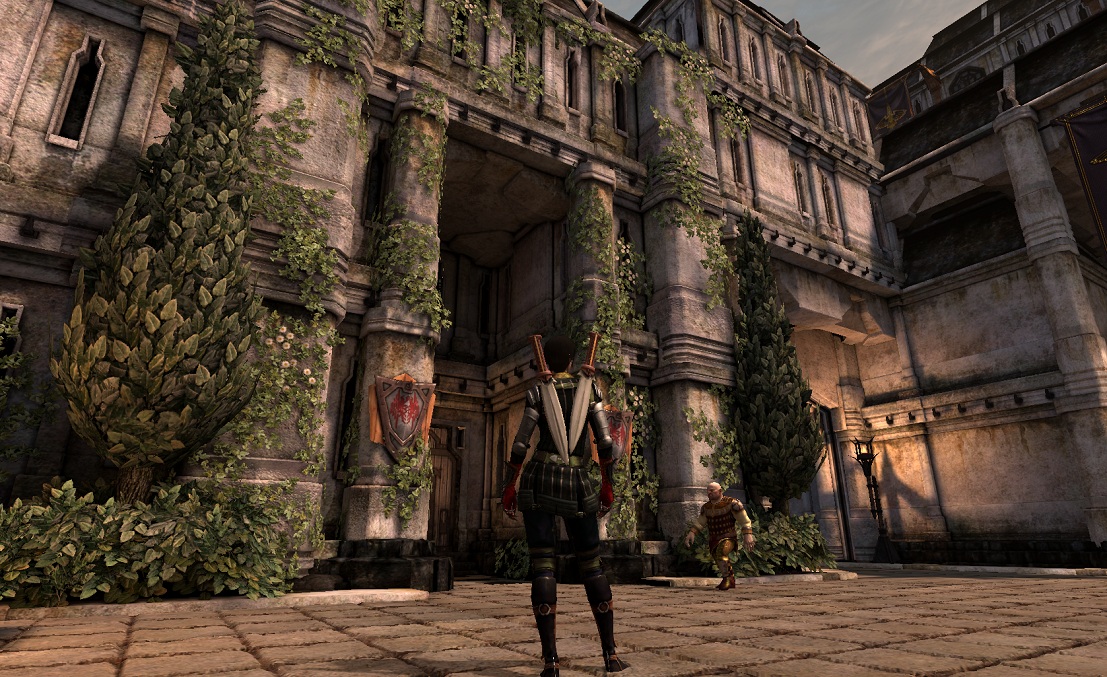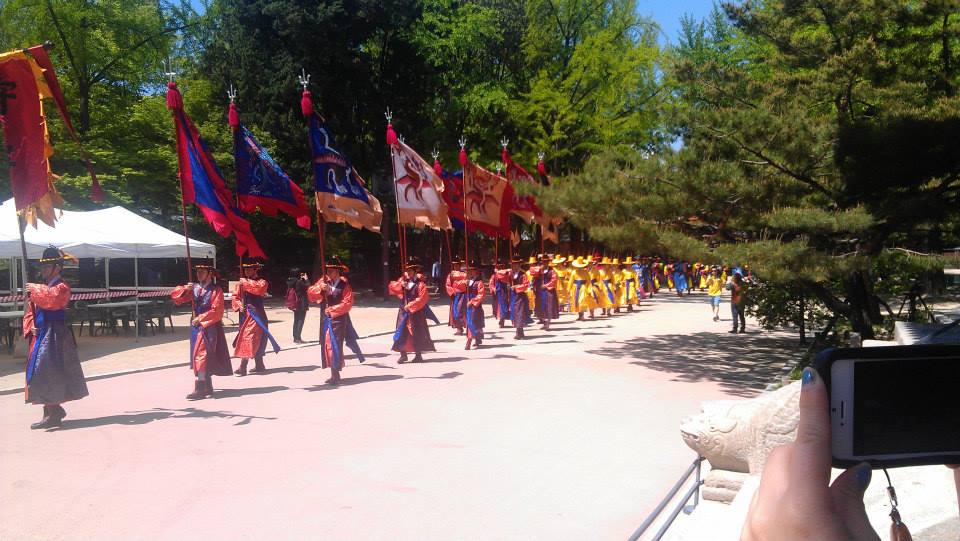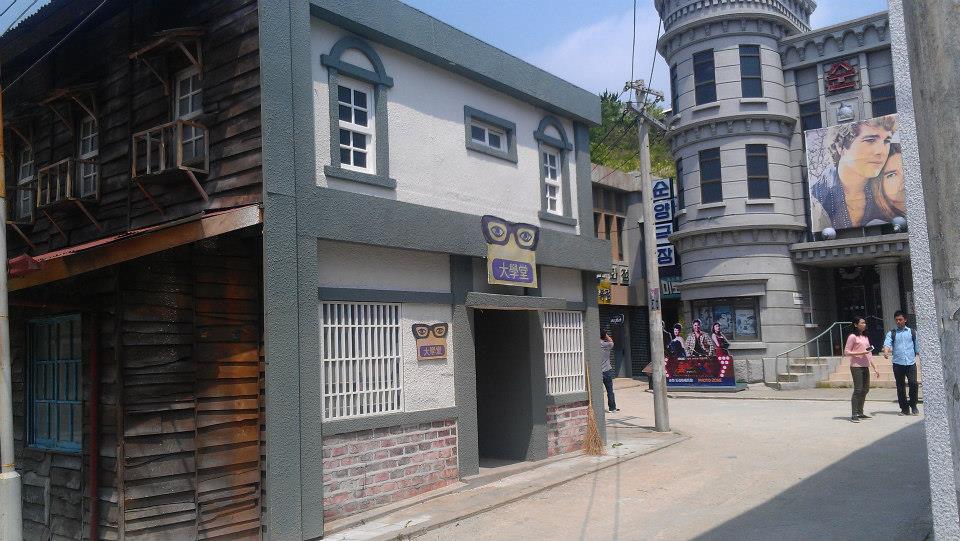Kirkwall and Korea: How games can be better tourist destinations
Dragon Age 2's central city could take some lessons from Korea.

Holidays are a good catch-up time for finally knuckling down and finishing the games guiltily lurking in the back of your collection, the ones you didn’t hate but didn’t love enough to complete before something shiny and new came along and distracted you. I spent my last holiday in South Korea, visiting Seoul as well as the smaller cities Jeonju and Suncheon, but at the same time I was replaying Dragon Age 2 and exploring its city of Kirkwall. That game made me feel as much like a tourist as I did taking photos of Korean palaces and temples and food (so much food), but not in a good way.
In Dragon Age 2 you play a refugee from a fantasy village—which has burnt to the ground like they’re apparently designed to do—who has come to Kirkwall for safety. At first it doesn’t seem like a huge improvement: a grimy, impoverished place where "pig oat mash" is a significant part of the local diet, but over the course of several years you work your way from an untrusted outsider to an essential part of the community, "The Champion of Kirkwall." It’s a clever concept. So many fantasy games promise a massive scope but then deliver something thin, geographically large but superficial, and the idea of focusing on one area in depth, watching it change over time, would be a wonderful remedy to that.
Unfortunately, that’s not what Dragon Age 2 turned out to be. Even with the whole thing taking place in a relatively small area, a lot of locations are recycled, and while the wonderful narration of Varric the hairy chested love-dwarf informs you that years are passing, it never feels like it. Unchanging shopkeepers eternally repeat the same patter from the same stalls, and when a district is closed after a riot, this massive alteration to the fabric of the city is marked by a few waist-high planks blocking the entrance.
But what made me feel like a tourist in Kirkwall was how limited my actions were. I was playing as a rogue who couldn’t pick pockets or climb walls, and who—more significantly—couldn’t talk to people who weren’t important to the plot. It’s the same feeling when you’re in a foreign country and only speak enough of the language to order food off a menu and ask how much things cost or where the bathroom is. Everybody else may as well be non-interactive. It’s frustrating, as if shopkeepers, bartenders, and taxi drivers have exclamation marks over their head and you can’t click on anyone else.
Dragon Age 2 isn’t the only game to give me this odd sensation. L.A. Noire’s meticulously reconstructed 1950s Los Angeles stops feeling like the place you live and work the moment you leave each crime scene for a pointless drive to the next one. Famous landmarks like Grauman’s Chinese Theatre pop up on the map as you pass them in case you want to stop and gawp, but you’re not allowed to be a detective instead of a sightseer until you find the next witness to harass or dead woman to investigate. Like in Assassin’s Creed games, the only thing I did between objective markers was take screenshots and occasionally bump into people who repeated a bark in response.

Kirkwall’s guards occasionally mutter a sentence of chit-chat as you jog past on your way to the next quest, but they never feel like they’re guarding anything. By comparison, the costumed guards I saw in Seoul’s palaces (really just actors in fake moustaches) seemed like they were actually doing a job. They march around with polearms, swords, and bows and in the royal palace of Gyeongbokgung perform an elaborate changing-of-the-guard ceremony that involves a huge drum being beaten while two captains withdraw scrolls and recite the day’s password before swapping position. At the smaller palace of Deoksugung they have a similar ritual, but the retiring guards will sometimes cross the street, waiting at traffic lights in full Joseon Dynasty regalia, before marching to City Hall. I saw a small detachment wander off down a side street, past Dunkin’ Donuts and a waffle shop, and didn’t see them again.
Watching a tableau like this does some of the work of making a place feel like it has a function beyond being there for you to take photos or screenshots of. When you arrive at Columbia in BioShock: Infinite and see the barbershop quartet on the zeppelin sing God Only Knows to a small crowd it’s the first step in giving the sense this is a living place, but step two happens when you arrive at the carnival and can play a game of Cast Out the Devil, have a go at the shooting gallery, or use your new possession vigor to loot a Dollar Bill machine. None of these things advance the plot, they’re really just tutorials, but they let you do something other than fighting or talking without turning into a passive observer.
Keep up to date with the most important stories and the best deals, as picked by the PC Gamer team.

In Suncheon there’s a place called Film Village that recreates parts of Seoul from former decades, from a 1950s slum through to a 1980s entertainment precinct where the cinema has posters for Bruce Lee in Fists of Fury and Ali MacGraw in Love Story. Audio samples are triggered in certain locations, just like in a videogame: as you pass the bar sailors start drunkenly singing, and near the top of the hill dogs bark and children chant "kai bai bo!" as they play Rock Paper Scissors (the only game more popular in Korea than League of Legends). It’s been used as a set for K-dramas like Winter Sonata and A Werewolf Boy, but in spite of being a film set it feels alive. There are metal hoops you can roll down the road with a stick like a proper old-timey street urchin, a disco you can dance in, and a classroom with authentic textbooks on the desks and a piano you can play. It’s built as a literal backdrop, but it doesn’t feel like one.
By comparison, many of the buildings in Kirkwall are places you can look at but not enter, digital wallpaper that provides a background for the next street-gang ambush but otherwise may as well not be there. The loading screens warn you about getting ripped off in card games, but you can never join one. There are no children playing and there’s nowhere to dance. There’s a distance between you and the place you’re living in, and all it would take to reduce that is having more ways to interact with it. But what would really make the city feel alive is if occasionally some of the guards left their post in Lowtown and went down the road for donuts—even if they were donuts made out of pig oat mash.

Jody's first computer was a Commodore 64, so he remembers having to use a code wheel to play Pool of Radiance. A former music journalist who interviewed everyone from Giorgio Moroder to Trent Reznor, Jody also co-hosted Australia's first radio show about videogames, Zed Games. He's written for Rock Paper Shotgun, The Big Issue, GamesRadar, Zam, Glixel, Five Out of Ten Magazine, and Playboy.com, whose cheques with the bunny logo made for fun conversations at the bank. Jody's first article for PC Gamer was about the audio of Alien Isolation, published in 2015, and since then he's written about why Silent Hill belongs on PC, why Recettear: An Item Shop's Tale is the best fantasy shopkeeper tycoon game, and how weird Lost Ark can get. Jody edited PC Gamer Indie from 2017 to 2018, and he eventually lived up to his promise to play every Warhammer videogame.

